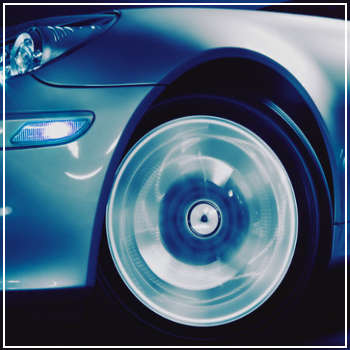 While many drivers overlook the TPMS light on their dashboard, it's one of the most important indicators for your safety and vehicle performance. The Tire Pressure Monitoring System alerts you when one or more of your tires are underinflated. Some may think that as long as the tire isn't completely flat, there's no need to worry. However, ignoring this warning can lead to serious consequences.
While many drivers overlook the TPMS light on their dashboard, it's one of the most important indicators for your safety and vehicle performance. The Tire Pressure Monitoring System alerts you when one or more of your tires are underinflated. Some may think that as long as the tire isn't completely flat, there's no need to worry. However, ignoring this warning can lead to serious consequences.
What Does the TPMS Light Mean?
The orange horseshoe with an exclamation mark is a clear signal that something is wrong with your tire pressure. But did you know that the behavior of the light can tell you more about the issue? Here’s what each status might mean:
- Light stays on: If the TPMS light remains illuminated while driving, it means at least one tire is significantly underinflated.
- Light flashes: A flashing TPMS light could indicate a system error or a faulty sensor. It's best to have a professional check it out to avoid any potential issues.
- Light turns on and off: This might be caused by temperature changes, especially if you've moved from a cold to a warm environment. The system may temporarily misread the tire pressure.
If you notice the TPMS light, it's a good idea to check your tires right away. Most gas stations have air pumps and gauges you can use to adjust the pressure back to the recommended level. Just make sure not to overinflate, as that can also cause damage over time.
Why Low Tire Pressure Matters
Low tire pressure affects more than just your fuel efficiency—it impacts your entire driving experience. Tires are responsible for supporting the weight of your vehicle and ensuring stability. When they’re underinflated, you may experience:
- Increased wear on the tire treads
- Reduced handling and control
- Lower load capacity
- Higher rolling resistance, which reduces fuel economy
- Decreased ability to disperse water, increasing the risk of hydroplaning
- Potential tire failure or blowout
Ignoring low tire pressure can lead to dangerous situations on the road. That’s why it's important to address the TPMS light as soon as it appears. If you're unsure how to check your tire pressure, don’t hesitate to reach out to a trusted mechanic. At DaSilva’s Auto Body Shop, we specialize in tire inspections and other essential auto services. Our team is here to help keep your vehicle running safely and efficiently. Contact us today to schedule a check-up and ensure your next drive is smooth and secure.
Ultral High Temperature HTF 380
Armcoltherm 380, High Temperature Stability, Reduced Operating and Capital Costs, Nonfouling
Liaoning Armco Technical Lubricants Co., Ltd , https://www.armcoltherm.com